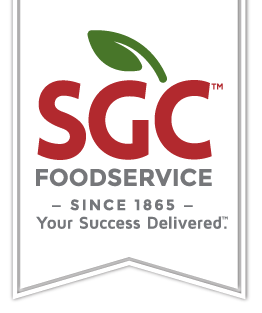Inflation is upon us and even though costs are continuing to rise, there seems to be some good news for operators. Despite the challenges posed by inflation, many consumers are continuing to dine out. When inflation occurs, consumers often feel the impact in their everyday lives, particularly in sectors like dining out. That is an area that could be cut due to the higher prices, but it seems to not be the case. Let’s explore why consumers are still clinging to restaurant establishments despite rising prices.
Desire for Experience
Dining out offers more than just a meal; it provides an experience. People often seek experiences that involve socializing, trying new foods, and enjoying the ambiance of a restaurant. The desire to create lasting memories and indulge in unique culinary offerings often outweighs the economic concerns tied to inflation. Consumers are willing to allocate a portion of their budget to such experiences, even when prices rise. A lot of the time, people are willing to pay for an experience, so this justifies the reason of going out to eat verses eating at home. Yes, they are paying for a meal, however they get a memory to last from the trip out of the house. Read about these tips that your restaurant can do to make an enjoyable experience for your guests. A rising emphasis on supporting local and small businesses has played a significant role in dine-out habits too. Consumers recognize the economic impact of backing their neighborhood eateries and value the personal touch of chefs. Additionally, patronizing local restaurants further strengthens the bond between residents and their neighborhoods.
Social and Cultural Factors
Eating out is deeply ingrained in many cultures. It's a way for people to come together, celebrate special occasions, and maintain social connections. As a result, consumers might be hesitant to forgo these social experiences, even in the face of inflation. The value of shared moments and the pleasure of exploring various cuisines can outweigh the financial pressures caused by rising prices. Restaurants can also serve as event spaces; therefore, it may be easier to host an event at a restaurant rather than holding the gathering at someone’s home. Restaurants typically have staff that help with events as well which can make the party run more smoothly. These benefits are worth it to consumers and make them willing to spend money especially if it is tied to a special celebration.
Convenience and Time-Saving
In today's fast-paced world, dining out is often seen as a time-saving solution. Balancing work, family, and other commitments can leave individuals with limited time and energy for cooking at home. While the cost of dining out might rise due to inflation, the convenience it offers remains valuable, especially for busy individuals and families. With restaurants offering carryout or some establishments having on-the-go meals, this is highly beneficial as it means less time, they must spend prepping, cooking, and cleaning up the meal themselves. Everyone always wants more time, so having dinner already made for you, will always be a win for consumers.
Limited Culinary Skills
Not everyone is a culinary expert, and many people lack the skills and confidence to cook intricate meals at home. For these individuals, dining out is an opportunity to enjoy well-prepared, diverse dishes that they might not be able to replicate in their own kitchens. Inflation might affect their budgets, but the alternative of cooking at home could also involve additional costs for ingredients, equipment, and time. It seems that consumers can very well justify having a well-prepared dish to spending a little bit more money here and there. Some individuals even prep an eating out budget, so they are prepared for what the month will cost when it comes to eating out. Those costs are not hidden when deciding what to eat, so with it being planned, they already are choosing to indulge in the restaurant scene.
Perceived Value
Consumers often base their purchasing decisions on perceived value rather than solely on the price tag. Restaurants can enhance perceived value by offering unique menu items, excellent service, and a pleasant dining environment. Even with rising prices, if consumers believe they are getting their money's worth in terms of taste, quality, and overall experience, they might still be willing to dine out. Giving your customers the experience, they deserve when coming to your establishment is crucial.
Treating Themselves
Dining out is often associated with treating oneself. Individuals might view restaurant visits as a form of self-care, relaxation, or reward. The psychological satisfaction derived from indulging in a favorite dish or exploring a new cuisine can outweigh concerns about higher costs due to inflation. Often, people will choose to dine out based on life events. If one receives good news, they may want to go celebrate by having drinks and well-prepared meal. Even if one receives bad news, they may decide to meet at a restaurant to eat a favorite dish to cheer them up. Many emotions can be linked with attending a restaurant, so prices won’t be much of a deciding factor.
While inflation undoubtedly affects consumers' purchasing power and spending habits, the reasons people choose to dine out are multifaceted. The desire for experiences, the importance of social and cultural connections, convenience, limited culinary skills, perceived value, and the psychological aspect of treating oneself all contribute to the continued popularity of dining out despite rising prices. As the economic landscape evolves, people's choices may adapt, but the enduring appeal of restaurant dining is likely to persist.

_4ygjplwo.jpg)